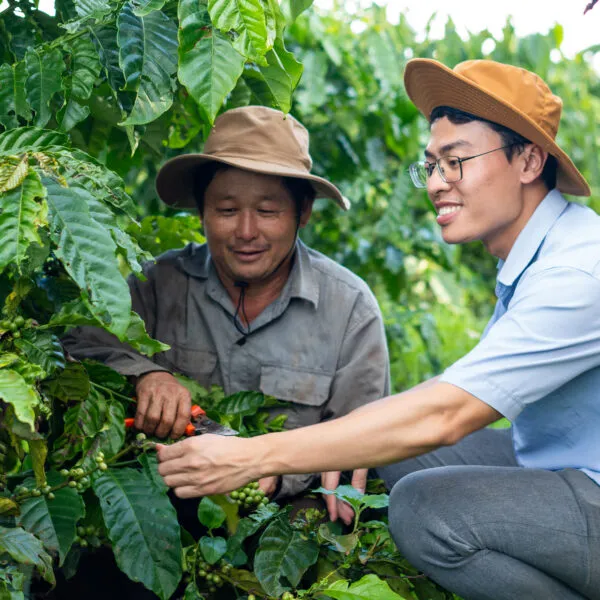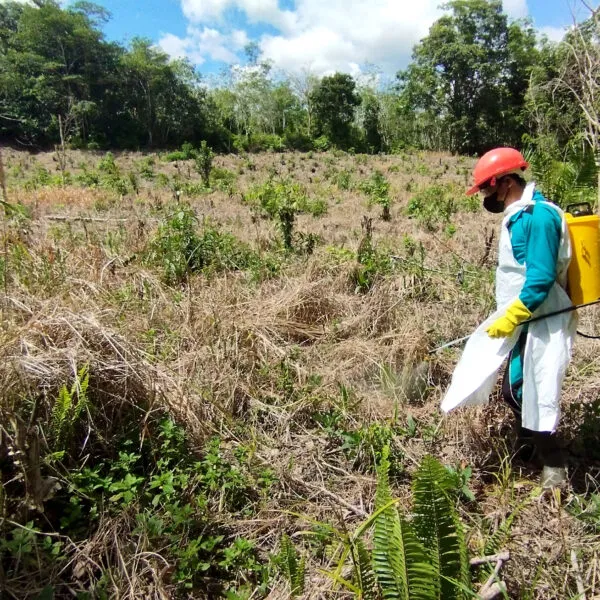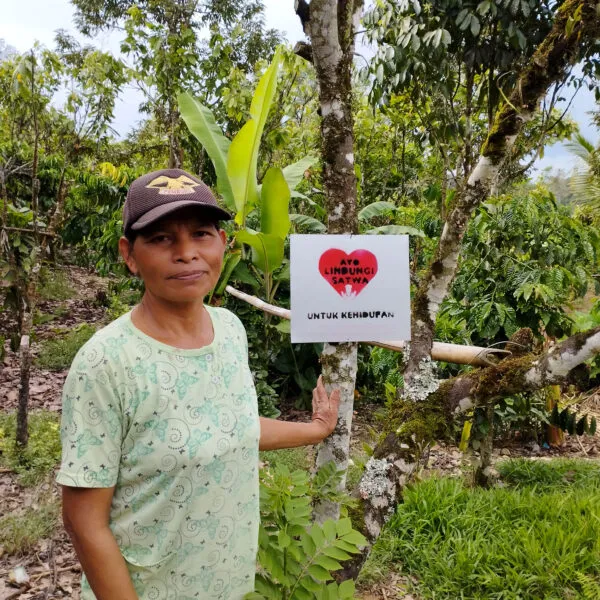Consumer demand for sustainable products is booming. Sustainability programs like Rainforest Alliance certification can offer farmers a way to access that expanding market, while growing their crops in ways that are better for nature.
But for some small-scale farmers in Indonesia, joining a certification program can be difficult, due to barriers like the cost of certification, a lack of local certification bodies, and the large amount of paperwork required. In addition, many sustainability programs favor large commercial farms because small-scale farm groups often lack the cohesion and governance needed to scale up.
To overcome these obstacles, Sustainable Farming in Tropical Asian Landscapes (SFITAL) aims to link small-scale producers to global supply chains in an environmentally sustainable, economically viable, and socially responsible manner. The Rainforest Alliance, alongside World Agroforesty (ICRAF) and Mars, will focus on two major tropical commodity sectors across Indonesia: cacao and oil palm.
Over the course of five years, SFITAL will implement several strategic activities, from research, to smallholder training, to facilitating public-private collaborations.
Partners
- Rainforest Alliance (co-lead, Indonesia)
- World Agroforestry (ICRAF) (lead)
- Mars, Incorporated (co-lead, Indonesia)
Location
Indonesia: North Luwu Regency, South Sulawesi Province (cacao); and Labuhanbatu Utara Regency, North Sumatra Province (oil palm)
Period
2020 – 2025
Partner Communities
- 2,100 smallholder cacao farmers in South Sulawesi, Indonesia
- 1,000 oil palm farmers in North Sumatra, Indonesia
- Two community-based MSMEs (micro-, small- and medium-sized enterprises) in Indonesia, involving more than 70 cacao producers.
Project Objectives
The project aims to:
- Build a deeper understanding of participating smallholders’ current and future needs in sustainability practices and monitoring. They will be trained in best agricultural practices, enhanced production standards, and environmental and social management systems, piloted and tested for on-the-ground implementation across their landscapes. This will support producers in achieving the sustainability standards and strategic positioning necessary to participate in the global market.
- Increase participation of small-scale producers in value chains based on sustainably sourced raw materials.
- Strengthen enabling environments for green growth through inclusive involvement of local governments and other actors, expanding the global scale of sustainable value chains of the two raw materials from the targeted landscapes.
- Implement Monitoring and Evaluation (M&E) systems and generate and promote shared learning.
Desired Impacts
- Institutional, policy and regulatory changes to improve sustainable, inclusive, and broad-scale transformation of smallholder-based commodity value chains by mobilizing the investment of the public and private sectors.
- Smallholders’ adoption of innovation and technologies for sustainable farming systems that meet global demand.
- Technical, regulatory, and political enabling environments to scale up sustainable commodity value chains in the targeted landscapes and/or jurisdictions.
- Integrated and effective knowledge and project management.
Funders
International Fund for Agricultural Development (IFAD)
Rainforest Alliance Contact
Hasrun Hafid, cocoa team manager for Indonesia




